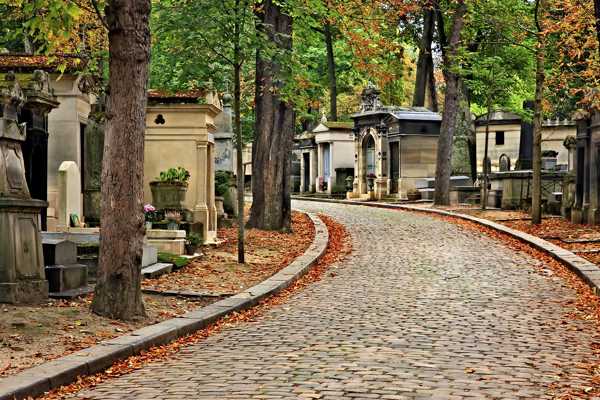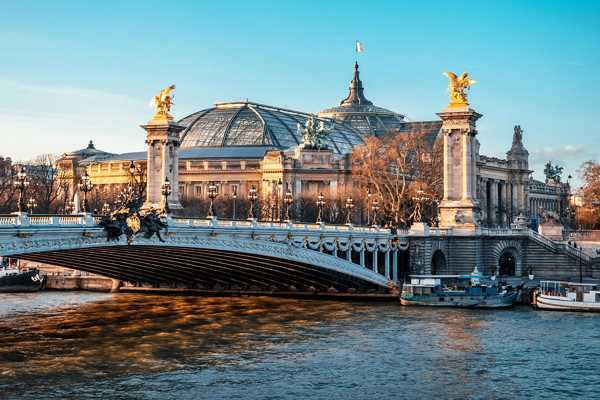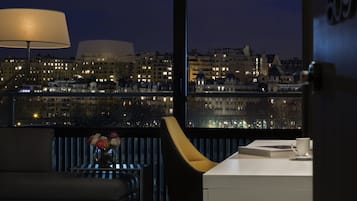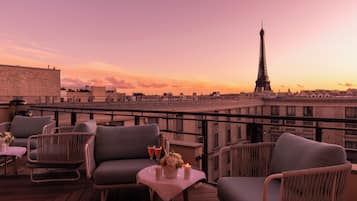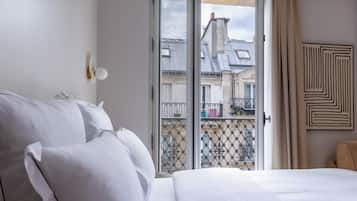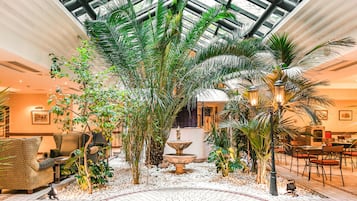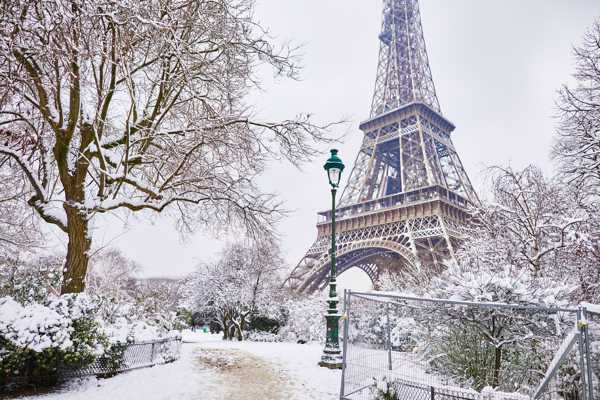The most popular streets in Paris are best explored on your own 2 feet. Simply wandering around the neighbourhoods, which you’ve probably seen in countless films, shows, and books, allows you to sightsee and get the feel of the city.
If you want to learn more about the Parisian lifestyle – the glamorous, the eccentric, and the mundane – lace up your walking shoes and explore the French capital on foot. From the Champs-Elysees to Rue Saint-Rustique, take a walk down Paris's streets to find the best places to eat, explore, and shop in the city.
What are the most popular streets in Paris?
- 1
Avenue des Champs-Élysées
Watch a cabaret or burlesque show
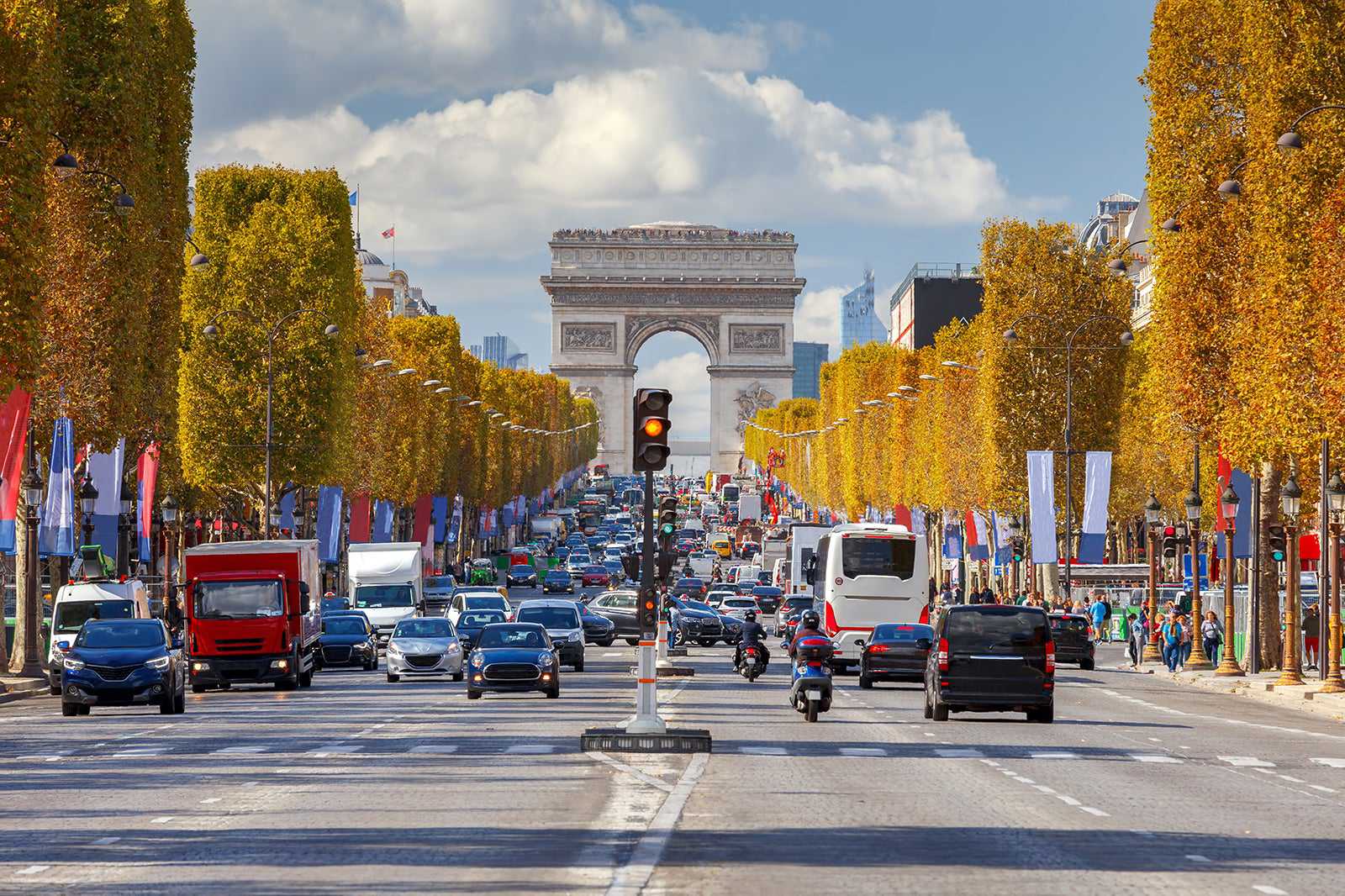
- Nightlife
- Photo
- Shoppers
Avenue Champs-Élysées starts from Place de la Concorde and extends to Place Charles de Gaulle, where you’ll find the Arc de Triomphe. Located in the 8th arrondissement of Paris, it’s known all over the world for its luxury stores, ranging from tiny boutiques to high-street shops. Guerlain and Louis Vuitton are some of the brands you’ll find on this boulevard.
Aside from fashion, Avenue Champs-Elysees is famous for its high-end cabaret and nightclubs. Le Lido’s Paris Merveilles art show is an experience worth having at least once in your life.
Map - 2
Avenue Victor Hugo
See the statue of the French author

- Couples
- Photo
- Shoppers
Avenue Victor Hugo is located in the 16th arrondissement of Paris. Starting from Arc de Triomphe and stretching all the way to Avenue Henri Martin, it’s one of the longest avenues in the French capital, second only to Champs-Elysees.
The avenue is named after the French novelist and poet Victor Hugo. You’ll find his statue at the end of the street, near the intersection with Avenue Henri Martin. Since it doesn’t have so many of the high-end boutiques and shops that other Parisian avenues have, it’s a great place for a leisurely stroll. You can take in the beautiful architecture of the buildings around without getting trapped in crowds of tourists.
Mapphoto by Polymagou (CC BY-SA 4.0) modified
- 3
Avenue Montaigne
Explore Paris’ main shopping street

- Couples
- Nightlife
- Photo
- Shoppers
Avenue Montaigne is lined with many luxury fashion brands, including Dior, Louis Vuitton, Fendi, Chanel, and Valentino. It’s the place to be if you’re looking to shop for designer brands and fresh French labels.
As one of the most exclusive streets in Paris, Avenue Montaigne has a more relaxed vibe and sees fewer crowds compared to the city’s busier streets. Even just strolling around the area is worthwhile for fashion and architecture lovers. Aside from high-end fashion houses, it’s home to Theatre des Champs-Elysees, which hosts about 3 staged opera performances and various concerts each year.
Mapphoto by Ralf.treinen (CC BY-SA 3.0) modified
- 4
Rue de Rivoli
Explore the world-renowned Louvre

- Budget
- Couples
- Photo
Rue de Rivoli runs parallel to the River Seine. No matter the time of day, this vibrant and highly populated street is always full of life and energy. Since the Louvre and Palais-Royal are located here, it’s packed with tourists looking to witness the old aristocratic side of the French capital.
Another well-loved attraction in the area is the Tuileries Garden. Locals and tourists come here to sunbathe, stroll, or have a picnic. Whether you’re looking to relax or explore, it's a good idea to wear comfortable and sturdy shoes that can hold up well against the gravel paths.
Map - 5
Rue Saint-Rustique
Capture beautiful photos on an old cobbled Parisian street

- History
- Photo
Rue Saint-Rustique is nestled between 2 cafés – Le Consulat and La Bonne Franquette. It’s a narrow cobbled lane, which is one of the oldest streets in Paris.
Tourists going on a guided walking tour around Montmartre often pass by here to catch a glimpse of old village life in Paris. If you’re not on a guided tour, it’s still worth a visit because of its photo opportunities. Find this tucked-away gem to capture unique photos of your trip to the Parisian capital.
Mapphoto by Shadowgate (CC BY 2.0) modified
- 6
Rue Montorgueil
Wander through a local food market

- Food
Rue Montorgueil is a local favourite among the most popular streets in Paris. This is where Parisians shop for their daily needs. It’s lined with cafés, bistros, produce stands, fish stores, pastry shops, and bakeries, many of which have been around since the last century.
Stohrer, a French patisserie, has been around since 1730. Just a stone’s throw away, you’ll find a cheese shop called La Fermette, which offers a wide range of options for curious foodies. Other well-known food spots that are worth trying include L’Escargot Montorgueil and Au Rocher de Cancale.
Mapphoto by Jean-Christophe BENOIST (CC BY-SA 3.0) modified
- 7
Rue Saint-Dominique
Refuel at a boulangerie

- Food
- History
- Shoppers
Spanning the width of the 7th arrondissement of Paris, Rue Saint-Dominique is full of trendy and upscale boutiques, bakeries, and speciality stores. Tourists often end up here after visiting the Eiffel Tower. If you’re looking to refuel after a day of exploring, you have various boulangeries to choose from, including Le Moulin de la Vierge, Le Champ des Delices, and Jean Millet.
Towards the river, you’ll see Musee du Quai Branly, the only museum in Paris that is dedicated to the native arts of Africa, Oceania, and the Americas. Musee des Egouts, the sewer museum, is nearby Rue Saint-Dominique.
Map - 8
Rue Oberkampf
Grab a drink at a trendy bar

- Budget
- Food
- Nightlife
- Photo
Rue Oberkampf has a vast selection of cool bars and trendy restaurants, making it a go-to hangout spot for college students and young tourists. The drinks cost nearly half of what they do in tourist-packed areas like the Latin Quarter.
You don’t have to miss out on Paris's nightlife if you’re on a budget. Whether you’re looking for craft beer, cocktails, or other spirits, this street will give you excellent yet affordable options. Aside from its vibrant nightlife scene, Rue Oberkampf is known for its urban art. As you walk along the street, you’ll see art painted on walls, metal shutters, and street furniture.
Mapphoto by Patrick Nouhailler (CC BY-SA 3.0) modified
- 9
Rue Vieille du Temple
Dine at local favourites

- Food
- History
- Photo
Rue Vieille du Temple is an old street located in the Marais District. It’s full of chic bistros and restaurants, one of which is Au Petit fer a Cheval. It’s a small café with a horseshoe-shaped bar, where guests can sit elbow to elbow, enjoying the morning paper with an espresso in hand. It’s also a great place to enjoy tarte Tatin or duck confit.
Another interesting place that’s worth visiting is La Belle Hortense. It offers a boozy and literary escape from the tourist-filled bars in Marais. Since half of it is a bookstore, you can grab a book and enjoy a glass of wine while you’re at it.
Map - 10
Rue des Francs-Bourgeois
Explore historical buildings and gardens

- History
- Photo
- Shoppers
Rue des Francs-Bourgeois is a trendy shopping street in Marais, lined with boutiques and shops, which are open on Sundays. Tourists and locals alike come here to have brunch or take leisurely strolls around its remarkable buildings.
A notable attraction in the area is Hotel Carnavalet. The lavish architecture and décor of the buildings are a stark contrast to the small speciality stores and boutiques that you’ll see throughout the neighbourhood. A historical site that the public can visit is the Cognacq-Jay museum. It houses a collection of sculptures, paintings, furniture, ceramic pieces, and other artefacts, all from the 18th century. Meanwhile, Les Miserables fans can learn more about the book’s author by touring Maison de Victor Hugo.
Mapphoto by Ctruongngoc (CC BY-SA 3.0) modified


